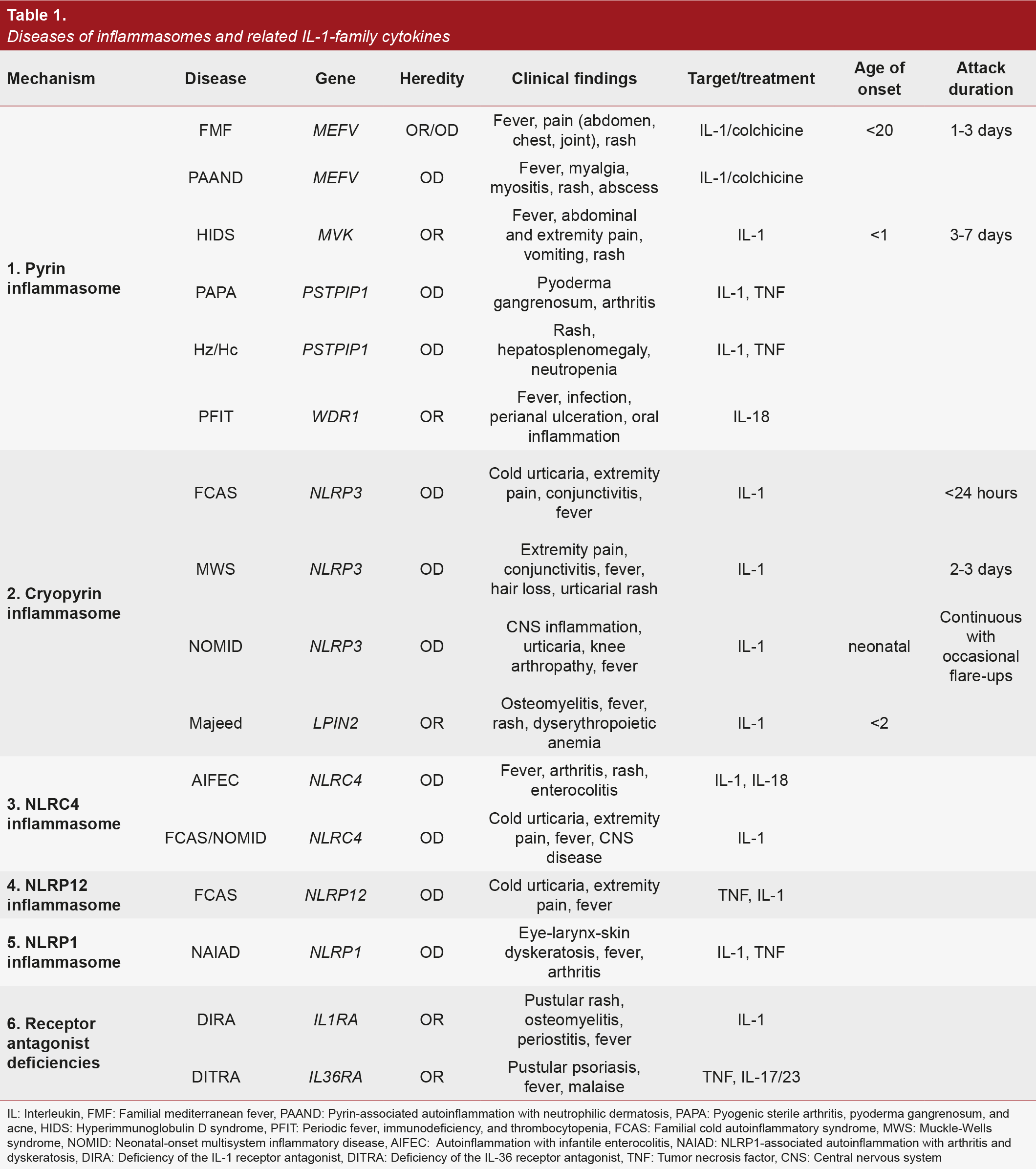Autoinflammatory Disease: Molecular Insights, Clinical Spectrum, and Emerging Therapies
Autoinflammation: Mechanisms and Management
DOI:
https://doi.org/10.4274/jpea.2025.453Keywords:
Autoinflammation, renal excretion functions, autoinflammatory disease, hereditary AIDs, periodic disease, recurrent feverAbstract
Autoinflammatory disease (AID) represents a heterogeneous group of disorders resulting from dysregulation of the innate immune system, independent of autoantibodies or antigen-specific T-cells. Clinically, AIDs are marked by recurrent or persistent systemic inflammation manifested by organ-specific involvement such as fever, rash, arthritis, serositis, mucocutaneous lesions, cytopenias, and neurological or gastrointestinal complications. This review provides a comprehensive overview of the major autoinflammatory syndromes categorized according to their underlying molecular mechanisms. It discusses the current understanding of the pathogenesis, clinical manifestations, diagnostic approaches, and treatment strategies of AID’s, with particular-emphasis on genetically defined syndromes and their molecular classification. Understanding the genetic and molecular basis of these syndromes has led to significant advances in their diagnosis and management. However, variability in clinical presentation, incomplete genotype-phenotype correlations, and the rarity of many conditions continue to pose diagnostic and therapeutic challenges. Continued research into novel disease mechanisms, therapeutic targets, and long-term outcomes is essential to improve the care of individuals with these complex disorders.

Downloads
Published
How to Cite
Issue
Section
License
Copyright (c) 2023 The Journal of Pediatric Academy

This work is licensed under a Creative Commons Attribution-NonCommercial-NoDerivatives 4.0 International License.








